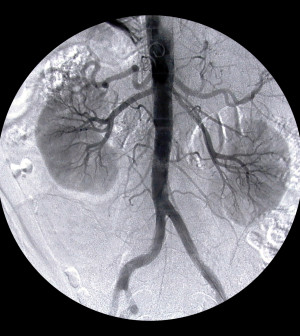- The Best Time of Day to Drink Bone Broth to Maximize Health Benefits
- 8 Ways to Increase Dopamine Naturally
- 7 Best Breads for Maintaining Stable Blood Sugar
- Gelatin vs. Collagen: Which is Best for Skin, Nails, and Joints?
- The Long-Term Effects of Daily Turmeric Supplements on Liver Health
- Could Your Grocery Store Meat Be Causing Recurring UTIs?
- Are You Making This Expensive Thermostat Error This Winter?
- Recognizing the Signs of Hypothyroidism
- 10 Strategies to Overcome Insomnia
- Could Artificial Sweeteners Be Aging the Brain Faster?
Type of Kidney Disease May Dictate Cancer Risk


Cancer risk for kidney transplant recipients may vary depending on the type of kidney disease they have, a new study finds.
Patients with polycystic kidney disease (PKD), a genetic disorder, may be less likely to develop cancer than those with other types of kidney disease, but they still have a higher cancer risk than people in the general population, the researchers found.
In polycystic kidney disease, cysts form in the kidneys, causing the kidneys to become enlarged. The condition affects nearly one in 1,000 people in the United States.
The research team analyzed data from more than 10,000 Americans with polycystic kidney disease who received a kidney transplant and more than 107,000 transplant recipients with other kidney diseases.
After adjusting for a number of factors, the researchers concluded that patients with polycystic kidney disease were 16 percent less likely to develop cancer than those with other kidney diseases. Compared to people in the general population, cancer risk was 48 percent higher in polycystic kidney disease patients and 86 percent higher among those with other kidney diseases.
The study was published online May 22 in the Journal of the American Society of Nephrology.
It’s not clear why polycystic kidney disease patients have a lower cancer risk than other kidney disease patients, “but some factor or factors in PKD patients — either inherent in the disease process itself or related to the care PKD patients receive — is associated with lower risks of cancers,” Dr. James Wetmore, of the University of Kansas Medical Center, said in a journal news release.
“Further study is required to determine how PKD might influence the development of cancer,” he added.
It may be that polycystic kidney disease may trigger certain defenses that protect against cancer. Or it’s possible that because of their disorder, people with polycystic kidney disease adopt healthy habits that help protect them against cancer, Wetmore suggested.
More information
The U.S. National Library of Medicine has more about polycystic kidney disease.
Source: HealthDay
Copyright © 2026 HealthDay. All rights reserved.










